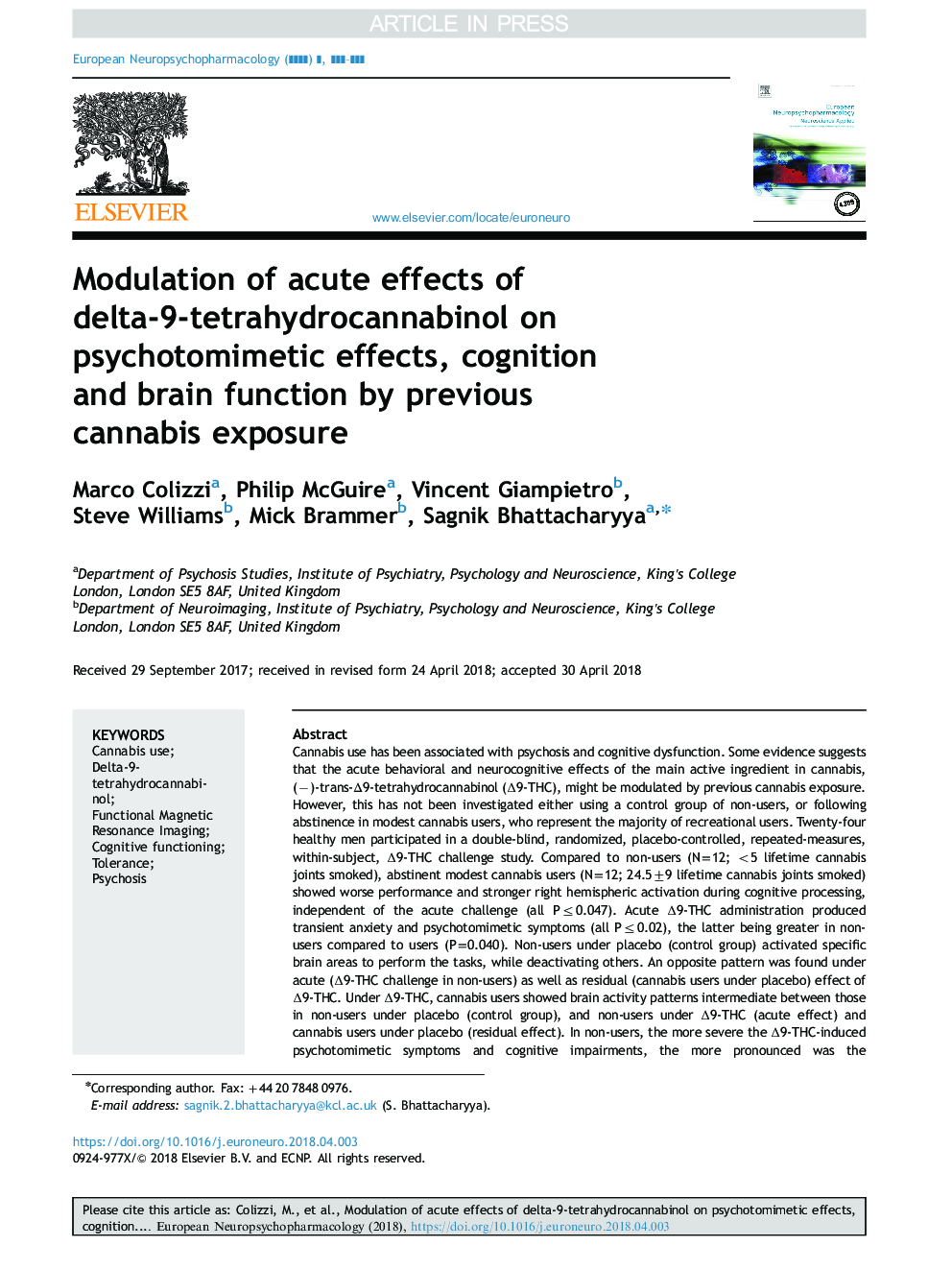| Article ID | Journal | Published Year | Pages | File Type |
|---|---|---|---|---|
| 6790383 | European Neuropsychopharmacology | 2018 | 13 Pages |
Abstract
Cannabis use has been associated with psychosis and cognitive dysfunction. Some evidence suggests that the acute behavioral and neurocognitive effects of the main active ingredient in cannabis, (â)-trans-Î9-tetrahydrocannabinol (â9-THC), might be modulated by previous cannabis exposure. However, this has not been investigated either using a control group of non-users, or following abstinence in modest cannabis users, who represent the majority of recreational users. Twenty-four healthy men participated in a double-blind, randomized, placebo-controlled, repeated-measures, within-subject, â9-THC challenge study. Compared to non-users (N=12; <5 lifetime cannabis joints smoked), abstinent modest cannabis users (N=12; 24.5±9 lifetime cannabis joints smoked) showed worse performance and stronger right hemispheric activation during cognitive processing, independent of the acute challenge (all Pâ¤0.047). Acute â9-THC administration produced transient anxiety and psychotomimetic symptoms (all Pâ¤0.02), the latter being greater in non-users compared to users (P=0.040). Non-users under placebo (control group) activated specific brain areas to perform the tasks, while deactivating others. An opposite pattern was found under acute (â9-THC challenge in non-users) as well as residual (cannabis users under placebo) effect of â9-THC. Under â9-THC, cannabis users showed brain activity patterns intermediate between those in non-users under placebo (control group), and non-users under â9-THC (acute effect) and cannabis users under placebo (residual effect). In non-users, the more severe the â9-THC-induced psychotomimetic symptoms and cognitive impairments, the more pronounced was the neurophysiological alteration (all Pâ¤0.036). Previous modest cannabis use blunts the acute behavioral and neurophysiological effects of â9-THC, which are more marked in people who have never used cannabis.
Keywords
Related Topics
Life Sciences
Neuroscience
Biological Psychiatry
Authors
Marco Colizzi, Philip McGuire, Vincent Giampietro, Steve Williams, Mick Brammer, Sagnik Bhattacharyya,
